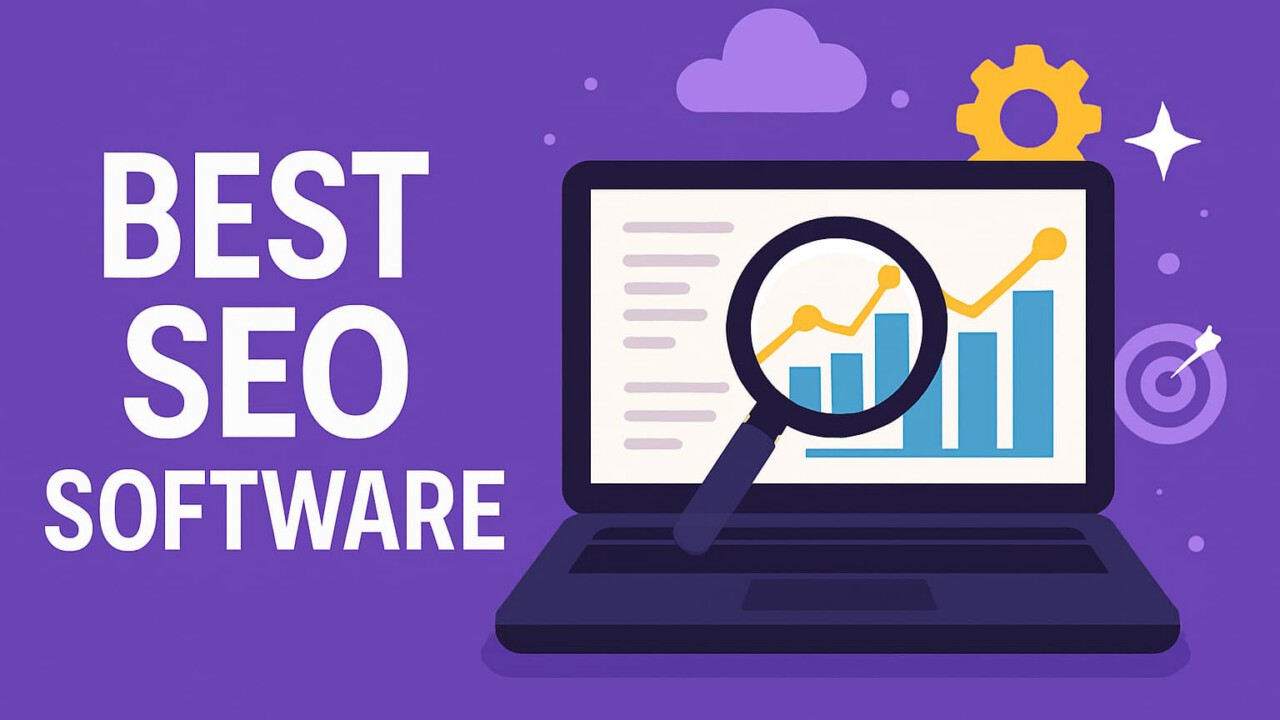Overview
Search engine optimization (SEO) is all about getting more and better organic traffic to your website. That means showing up higher in search results for the right people, at the right time. However, simply writing a few blog posts and tweaking meta tags won’t make a significant difference. To really compete, you typically need dedicated SEO software to track performance, uncover opportunities, and guide your strategy.
In this article, we’ll cut through the noise and highlight the best options, from all-in-one platforms to specialized tools for keyword research, site crawls, and more. You should get a clear picture of what’s worth your time and money, so you can pick the right fit for your needs and start improving your search traffic.
Best SEO Software Overall
There are too many use cases for a one-size-fits-all SEO tool, so “the best” can’t really be boiled down to a single option; it depends on the user’s needs. These selections are the favorite and most essential tools, listed in alphabetical order. You can decide what’s best for you, based on your needs and projects.
Ahrefs
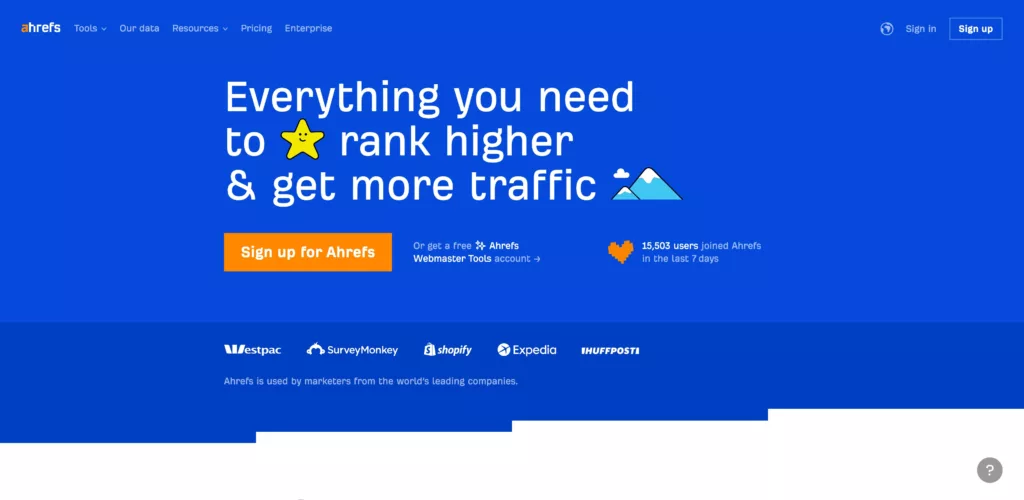
Ahrefs offers world-class keyword data, technical SEO reports, and competitor analysis tools. Ahrefs is a go-to for those seeking a professional SEO suite. Additionally, they offer plenty of support content on their blog and YouTube channel that showcase productive SEO tasks.
Pricing: $129-$449/month
Google Search Console
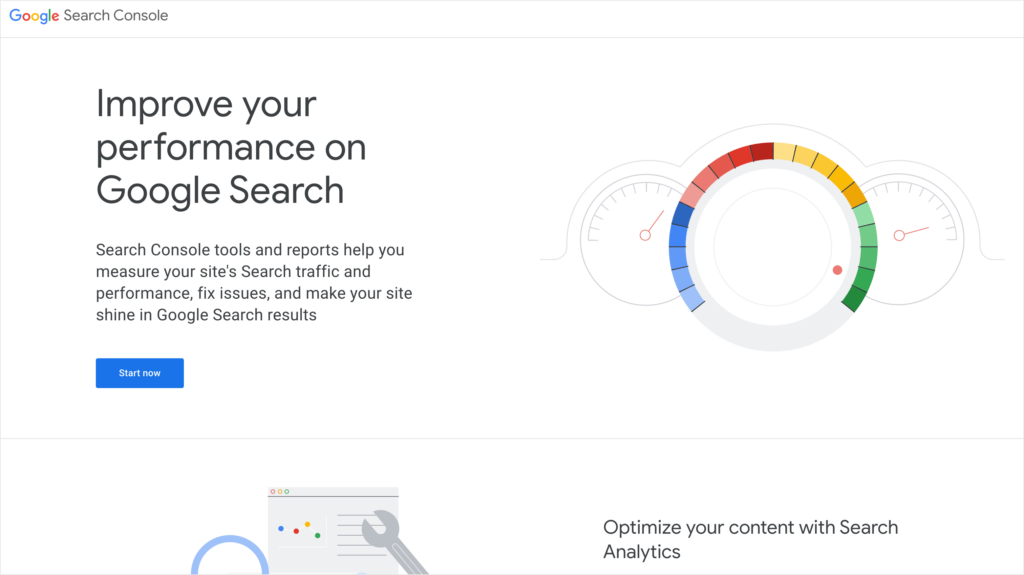
Google Search Console is an essential SEO tool. Every public site should have this set up. It provides critical data and management tools for understanding and getting the most out of your site and search traffic. It is your best insight into how your website is performing in Google search results.
Pricing: Free
Moz Local
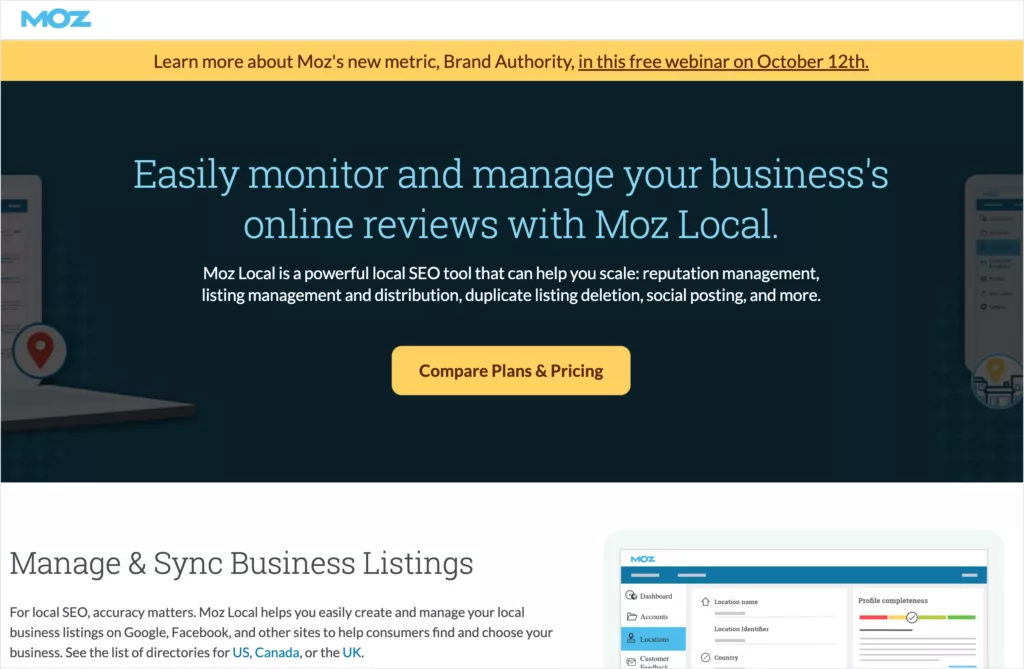
Moz Local is an excellent tool for setting up and managing your local listings in Google, Bing, and other important sites. It performs a significant amount of tedious work for a reasonable price, especially when compared to other professional SEO tools. We recommend setting up your local listings with it to save time, effort, and energy.
Pricing: $14-$33/month
Screaming Frog SEO Spider
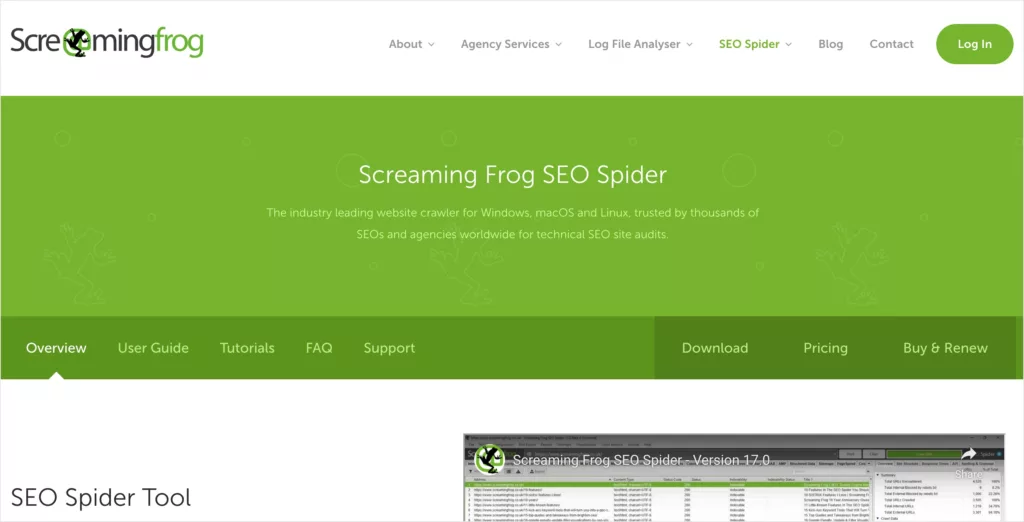
Screaming Frog has been a standard in the SEO toolkit for over a decade. It emulates search engine web crawlers and provides a wealth of key SEO information across your site. Unlike most other tools, it’s a desktop-based application that supports Mac, Windows, and Linux. It is an essential tool for spotting Technical SEO issues.
The free version only crawls up to 500 pages and has other limits, but it’s still quite useful, especially for smaller sites and those just getting started. The paid version offers full crawls and enhanced settings with a yearly license.
Pricing: $0-$259/year (single license)
Yoast SEO
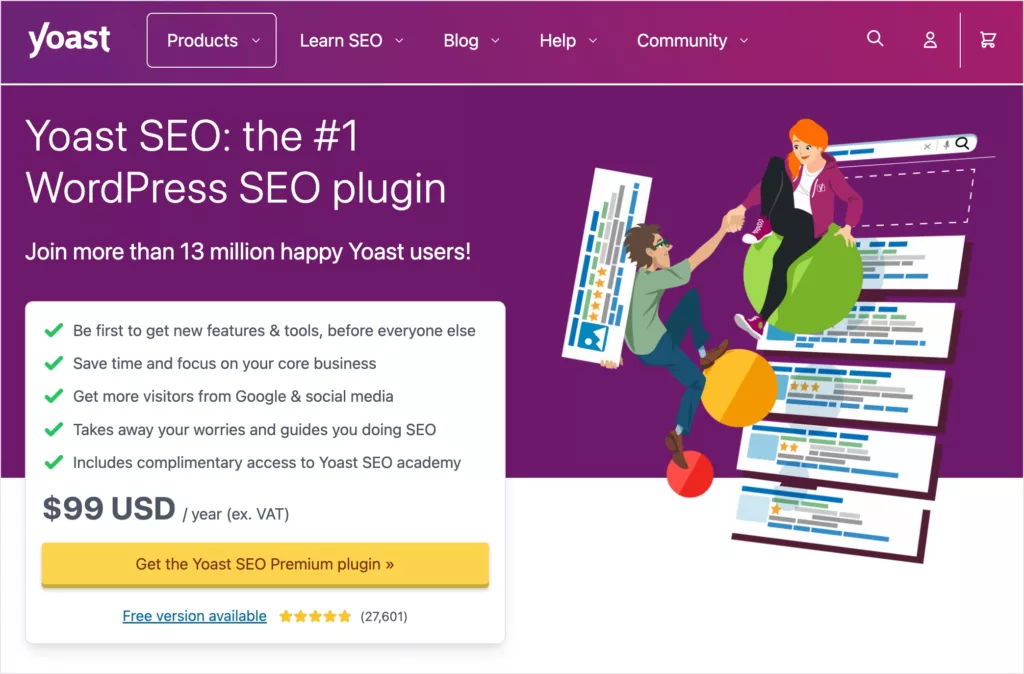
Yoast SEO is widely considered the best SEO WordPress plugin. It’s our favorite too. Yoast helps you visualize and manage the SEO aspects of your site, including helpful tools for meta tags, keyword targeting, on-page SEO analysis, and more.
The free version grants essential tools, but if you’re serious about producing high-quality content and managing it effectively, the premium offers solid features like redirect management that simplify tedious SEO tasks.
Pricing: $0-$99/year
Best Free SEO Tools
While many premium SEO tools are outrageously expensive, there are numerous great, free, and powerful options available. These tools can help you improve SEO without costs.
- Google Search Console: Provides insights on your site’s visibility in Google search, flags indexing issues, and reveals your top-performing search queries. A must-have for site health monitoring.
- Google Analytics: A great, incredibly popular free option for measuring site analytics and search traffic. Essential for understanding your audience’s behavior.
- Google Keyword Planner: While it’s only kind of useful for keyword research (no difficulty metric), you can still get search volume and related keyword ideas, as well as CPC data and paid search insights.
- Ahrefs Free Tools: While highly limited compared to the paid version, Ahrefs still offers a range of useful free tools for SEOs and webmasters.
- Moz Free Tools: A few no-cost options for basic domain analysis, backlink research, a few other tricks. Ideal for those new to SEO.
- Semrush Free Account: Although not nearly as powerful as a paid account, it still offers a range of useful tools for sites taking their first steps.
- Screaming Frog (Free Version): Crawls your site’s URLs to pinpoint potential SEO problems. Perfect for auditing your site for any obvious errors like 404s and long title tags.
While free tools are beneficial, they often come with limitations. Depending on your SEO ambitions, considering paid options might be the next step.
Best Paid SEO Tools
Quality SEO work and toolsets require more advanced features and extended data limits. A good paid tool can provide invaluable insight and data to help form your strategies. Here are some top contenders:
- Ahrefs: A comprehensive SEO toolset that offers backlink analysis, keyword research, and competitive insights. Widely regarded for its extensive backlink database.
- Semrush: Equipped with a suite of tools covering SEO, PPC, and market research. Known for its competitive domain comparisons and keyword tracking.
- Moz Pro: Delivers in-depth keyword analysis, link-building strategies, and site crawls. Favored for its intuitive interface and detailed domain analytics.
- Screaming Frog SEO Spider (Paid Version): A more advanced version of its free counterpart, allowing unlimited site crawls and more in-depth analysis.
- Yoast Premium: While the free version offers the essentials, the premium plug-in features richer tools, useful on-page blocks, and redirect capabilities.
While these tools come with a price tag, their advanced functionalities often make the investment worthwhile, especially for businesses keen on competing in valuable SERPs.
Other SEO Tools to Consider
While these aren’t our favorites, it doesn’t mean they aren’t someone else’s. These tools are other top competitors in the SEO software market:
- Majestic: Distinguished for its extensive link database and domain/link metrics.
- BuzzSumo: An essential tool for content researchers, highlighting the most shared content across platforms.
- seoClarity: A highly scalable platform with many tools and SEO resources.
- Clearscope: A content optimization platform intended to boost content relevance.
- Raven Tools: A suite that offers SEO audits, backlink analysis, and rank-tracking functionalities.
Key Elements of Quality SEO Software
Selecting the right SEO software can significantly impact the effectiveness of your optimization efforts. Consider these elements when researching:
- Comprehensive Keyword Research: The software enables users to discover and analyze potential keywords for their content, considering factors such as search volume, difficulty, and site authority.
- Site Audit Capability: Conducts thorough checks on your website to identify technical SEO issues, including broken links and slow page load times, ensuring optimal site health.
- Backlink Analysis: Evaluates the quality and quantity of backlinks to your site, helping you understand your domain’s authority and identify potentially harmful links.
- On-Page SEO Recommendations: Provides actionable insights for optimizing individual pages, including title tags, meta descriptions, and relevance to your primary keyword.
- Competitive Analysis: Provides insights into competitor strategies, enabling you to identify gaps in your approach and uncover new opportunities.
- SERP Tracking: Monitors your website’s rankings for targeted keywords on search engine results pages, ensuring you are aware of any significant changes or trends.
- User-Friendly Interface: An intuitive and easy-to-navigate dashboard that simplifies the process, even for those not deeply versed in SEO.
- Integrations: Connects with other popular tools and platforms, such as content management systems, Google Analytics, or social media platforms, to enhance social media marketing.
- Regular Updates: As search engine algorithms evolve, the software should adapt by updating its features and database to reflect these changes.
- Robust Reporting: Generates detailed, easy-to-understand reports on various SEO metrics, enabling you to measure progress and adjust strategies accordingly.
- Security: Ensures user data is protected and safe from breaches, especially if the platform requires integration with your website.
- Customer Support: Provides prompt, knowledgeable assistance when issues arise or guidance is needed on using the tool effectively.
While these elements are strong signifiers of quality software, the best option for you depends on your specific SEO needs, the scale of operations, and your budget.
How to Choose SEO Software
Researching SEO tools can be overwhelming, especially when testing them out or for those new to the practice. Use the following guidelines when considering options.
Understand Your Primary Needs
It’s crucial to clarify what you need before exploring tools. Knowing your goals will help determine how you approach software. Here are some common needs for those getting started:
- Keyword Research: If the heart of your strategy revolves around keyword analysis, choose a tool known for its extensive keyword databases and tracking capabilities.
- Technical SEO: For those more concerned with technical optimization and detecting website issues, choose a tool with strong technical reports.
- Backlink Analysis: If you focus on understanding how other sites link to yours or your competitors, look for backlink reporting features.
Gauge Usability
Complex tools might offer advanced features, but can steepen the learning curve. If you’re new to SEO or want something straightforward, look for:
- Interface Clarity: The dashboard and overall design should be intuitive, allowing for easy navigation, research, and reporting.
- Guided Tutorials: Look for platforms that offer ample resources, tutorials, or onboarding training for newcomers.
Consider Pricing Plans
Your budget plays a vital role in your decision. Check for these:
- Flexible Plans: Opt for tools that offer scalable plans, allowing you to upgrade as your needs grow.
- Free Trials or Limited Versions: Testing a tool before making a full investment can prevent unwanted surprises. Many top tools offer free trials or limited versions for initial exploration.
Check Integration Capabilities
If you’re juggling multiple digital platforms:
- API Access: This is crucial if you want to pull data into other systems or tools.
- Integration with Other Platforms: Check if the SEO software integrates with your CMS, Google Analytics, or other tools in your stack.
Seek Recommendations and Reviews
Learn from testimonials and community feedback.
- Online Reviews: Websites like G2 or Capterra provide user-generated reviews that detail pros, cons, and user experiences.
- Community Input: SEO communities, like SEO subreddits or specialized forums, often share their experiences and software recommendations.
Bottom Line
Choosing good SEO software requires a harmonious balance of your needs, the tool’s capabilities, and your budget. As SEO is a long-term game, selecting a tool that aligns with your strategy and offers consistent support and accurate data is vital. Always take advantage of trial periods to ensure the software feels right before making a final decision.
